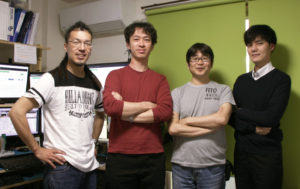Infiniti's Own EV Gets a Prerequisite Disclaimer: Induction Charging
The Nissan Leaf has been picking up steam for the past six months. CEO Carlos Ghosn continues to maintain an optimistic stance towards the eventual dominance of EVs. Therefore, it was no surprise when Infiniti showed us the Infiniti LE – a luxury sedan version of the Nissan Leaf – at the New York Auto Show last year. What’s more surprising is the news that Infiniti’s Executive Vice President, Andy Palmer, revealed earlier this week: production of an Infiniti EV hinges on the accessibility of induction charging.
Induction charging, which is when an electromagnetic field is used to wirelessly transfer energy between two objects, is currently more available than you might believe. It’s just not present in the automotive industry. Think of all of the wireless charging pads for things like smartphones and video game controllers. The technology is there, it just needs to be magnified to bigger scale. Carscoops reports that there are induction experiments being performed around the world on anything from a quad-bike to a city bus, so it may not be far off.
Still, however far off widespread induction charging is, that’s how long we’ll have to wait for the Infiniti LE Concept to become reality. For Infiniti, there is no such thing as a luxury wired EV. Palmer explains, “The whole concept of not having to couple up cables to a plug socket, dragging them on the ground and on you as you go, is in keeping with luxury motoring.” In other words, no luxury car driver in his right mind would EVER want to deal with the hassle of manually charging an electric vehicle, which seems a bit silly when:
– The Tesla Model S is incredibly successful and relies on wired recharging.
– Even Bugatti owners are quite happy to put a petrol nozzle in their fuel filler cap to, so what’s the big deal about having to plug a car in?
More important than the development of induction charging, though, is the acceptance of induction charging. If the technology is not widespread, then it defeats the purpose. Palmer reiterates, “There is no world standard on methods, the roll-out will be dependent on region.” This would explain why Infiniti is so gung-ho about open source research when it comes to induction technology. They’d like the auto industry to collectively develop a solution to accelerate its acceptance across the globe.
Whether or not Infiniti ever gets to produce the LE Concept, I don’t actually think it’ll have a big impact on Nissan’s EV-related goals. The bulk of their sales will still be Leafs. But, I don’t blame them for trying to get more mileage out of their hard-earned Leaf architecture, which is what would be used in any Infiniti offspring.
Do you think that induction charging would make a difference in the acceptance of EVs as a whole? Or is this something that will only ever matter for luxury brands?
Or do you think that Infiniti is just scrabbling around for an excuse to avoid going head-to-head with Tesla?
Let us know in the comments below, and thanks for reading!


